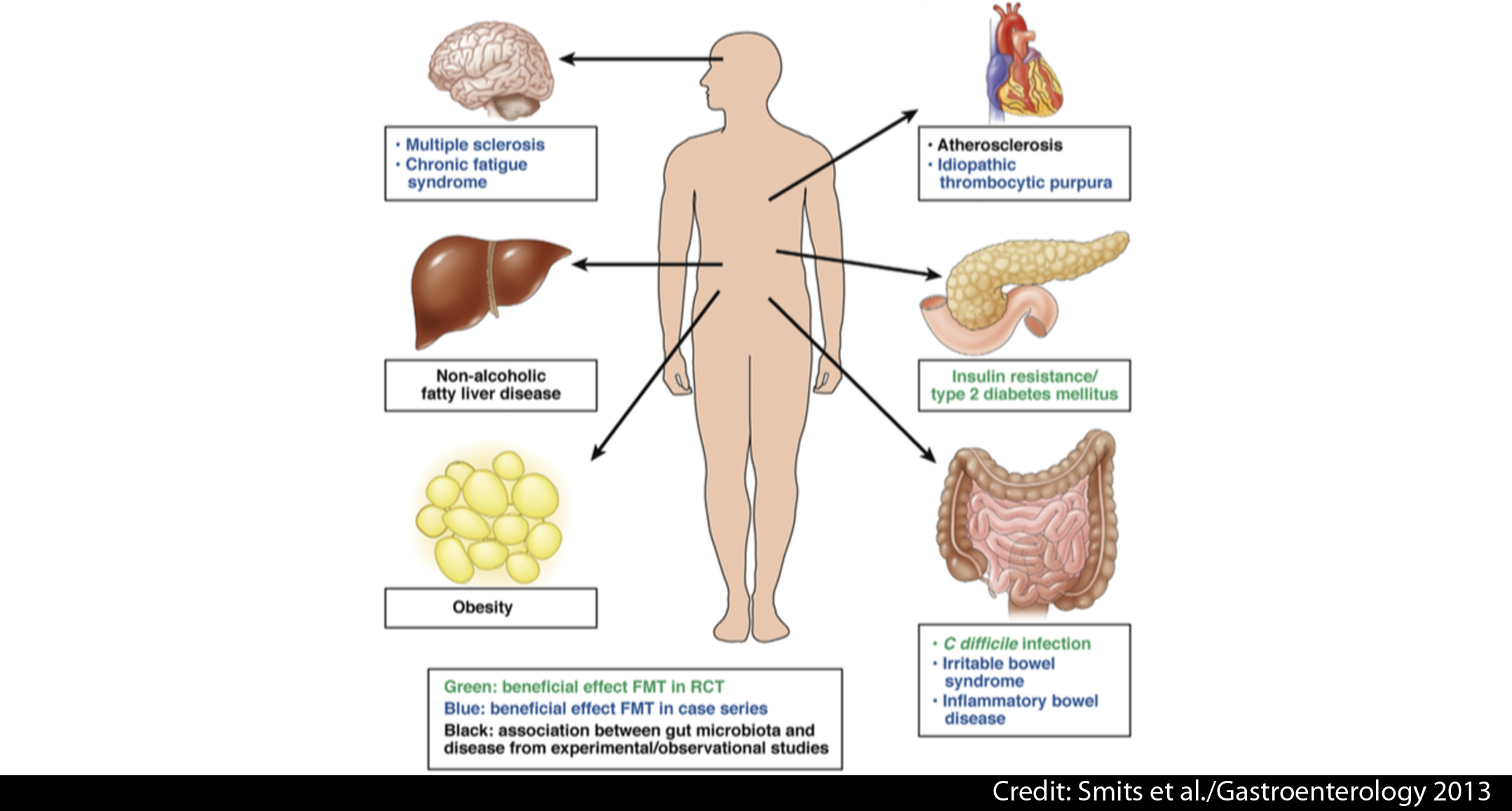
Last week in “Human Hosts” part 1, https://valeriegoldstein.wordpress.com/2017/02/05/human-hosts-transplants-promote-health-12/, I described the safety and efficacy of fecal microbiota transplantation. But poop is not the only place healthy microbiota bacteria live. Microbiota transplants (MT) from different body regions have proven equally helpful.
Scientists are studying the relationship between diseases and balancing “good” and “bad” bacteria from different body regions based on 2 simple theories.
- “bad” bugs cause inflammation
- “good” bugs support the immune system
Consider the emerging evidence:
- “Patrice Cani at the Université Catholique de Louvain in Brussels fed a high-fat, “junk food” diet to mice, the community of microbes in their guts changed much as it does in humans on a fast-food diet. But Cani also found the junk-food diet made the animals’ gut barriers notably more permeable, allowing endotoxins to leak into the bloodstream. This produced a low-grade inflammation that eventually led to metabolic syndrome. Cani concludes that, at least in mice, “gut bacteria can initiate the inflammatory processes associated with obesity and insulin resistance” by increasing gut permeability,” http://www.nytimes.com/2013/05/19/magazine/say-hello-to-the-100-trillion-bacteria-that-make-up-your-microbiome.html.
In other words, no matter what your weight is, even for those who are thin, no matter what your age, even a child, male or female, American or not, no matter who you are and where you are from, junk food can actually cause inflammation that makes unhealthy changes to your gut. And in turn, you become ill…heart disease, diabetes, obese…
- “Human investigations seem to prove that fecal transplant from lean healthy individuals into obese diabetic patients improved all the pathological parameters,” http://www.akademiai.com/doi/abs/10.1556/650.2015.30296?url_ver=Z39.882003&rfr_id=ori%3Arid%3Acrossref.org&rfr_dat=cr_pub%3Dpubmed&
- ” When gut microbes from easygoing, adventurous mice are transplanted into the guts of anxious and timid mice, they become more adventurous. The expression “thinking with your gut” may contain a larger kernel of truth than we thought. Our gut bacteria also play a role in the manufacture of substances like neurotransmitters (including serotonin); enzymes and vitamins (notably B vitamins and vitamin K) and other essential nutrients (including important amino acid and short-chain fatty acids); and a suite of other signaling molecules that talk to, and influence, the immune and the metabolic systems. Some of these compounds may play a role in regulating our stress levels and even temperament.”
There is also emerging evidence linking colic, allergies/asthma, eczema, type 1 diabetes, obesity and celiac disease with differences between the microbiota of infants delivered vaginally and those that come into this world through C-section. It seems that Lactobacillius (“good” bugs that help digest milk) in the vagina increases prior to birth. Newborns pass through the vagina and absorb the bacteria. C-section babies are lacking the gut flora and are more prone to colic. So it should not be surprising that in the United States with a 32.7 percent c-section rate in 2013 (well above the “medically necessary” target of 10 percent to 15 percent that WHO says is ideal), that the medical conditions mentioned above are on the rise.
- “Maria Gloria Dominguez-Bello, Ph.D., an assistant professor and microbiome researcher at New York University’s (NYU) Langone Medical Center has developed a technique called “gauze-in-the-vagina technique“, doctors soak a gauze pad in the mother’s vagina for one hour and remove it just before her C-section. When doctors remove the baby from the womb, they quickly swab it from head to toe with the gauze, ” http://www.thedailybeast.com/witw/articles/2013/06/02/babies-born-by-cesarean-section-may-not-gain-benefits-of-vaginal-microbiome.html.
From birth to near death, all over the body microbiota transplants that live in healthy humans can help unhealthy humans live healthy lives!
Who would have thought that medical strides would include using human hosts as a treatment options for undesirable temperment and stress, metabolic syndrome, diabetes, allergies/asthma, eczema, celiac disease, obesity and probably much much more.
As hosts to trillions of microbes, both good and bad, we may find that the answer to good health and longevity truly rests within ourselves.






